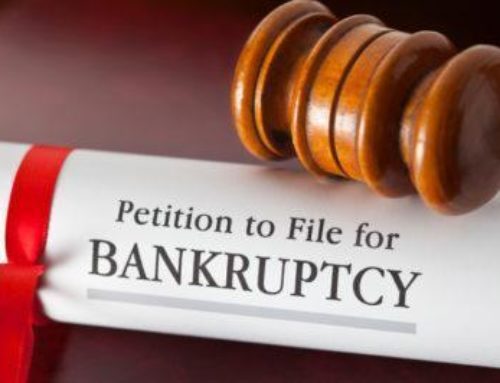Foreclosure in Salem, Oregon is a process where your lender eliminates your ownership interest in your real property. The lender does this through a foreclosure sale that is held at a published place, (usually in front of the Marion County Courthouse) and time,. Once the foreclosure sale has taken place, you no longer own the real property and you will have to vacate the property within ten days of face eviction proceedings.
If your lender is threatening foreclosure, it means that you are seriously in default on your mortgage and really are in danger of losing your property. There are two separate kinds of foreclosure: judicial and non-judicial.
In a judicial foreclosure, the foreclosure process is initiated through an actual lawsuit filed in the Marion County Circuit Court. Once a judicial foreclosure complaint has been filed, the lender will serve you with a copy of the complaint and a summons. Once you have been served, it is imperative that you meet with a lawyer as quickly as possible, as there is a fairly limited period of time to keep the lender from obtaining a default order of foreclosure.
In non-judicial foreclosure, the lender does not file any paperwork with the court. It just records a Notice of Default and Election to Sell in the Marion County real property records. The Notice will be served upon you and all other occupants of your real property by certified mail and US first class mail. The Notice will describe all the specifics of the loan default, including the total amount owing. Moreover, the Notice will list the time, date and location of the foreclosure sale. Once the lender formally starts the foreclosure process by filing a notice of default, you typically will have a few days short of four months to resolve the issue or you will lose your house.
Given how much easier it is to complete the non-judicial foreclosure process, It is fair to ask why would any lender foreclose on a Salem area property through judicial foreclosure. The reason is that some lenders don’t have any choice. Non-judicial foreclosure is only available if there is a trust deed rather than a mortgage.
Bankruptcy is often a great solution for stopping any kind of Foreclosure in Salem, Oregon and if a lender is foreclosing on your Salem area home, it is an option that you should immediately explore with an attorney rather than waiting until the last minute. I can’t count how many times we have been contacted for the first time on the day before a foreclosure sale. Sometimes we can help on that kind of an emergency basis and sometimes we can’t. We can almost always help if we are given a little more lead time.
Bankruptcy is a great solution for foreclosure because it stops foreclosure in its tracks. Once the case is filed, you have the option of slowly paying off the amount that you are behind, interest free, over a three to five year time period. You can even opt to pay most of the amount that you are behind out of a later refi or sale of the property. There are great options in bankruptcy that you can only discover by talking to us. Contact our offices today.
If you don’t stop the foreclosure, a date, time, and location of the sale will be set for sale, the Trustee will announce the property being sold. Anyone with enough cash on hand to make the purchase at the time of sale can show up and bid on the property.
The Trustee is usually authorized by your lender to enter a minimum bid equal to the amount owed to the lender. This enables the lender to buy the property for the amount of money the lender is owed on the property. This insures that the lender will not have to take a loss on the day of the foreclosure sale.
If you don’t want the property sold, there are ultimately only four routes to keep the foreclosure from being completed: (1) cure the default, also called “reinstating” the loan, (2) pay off the loan in full, (3) negotiate an extension with the lender, or (4) file for bankruptcy.
Under Oregon law, the Trustee has to stop the foreclosure sale if you pay the loan current at any time prior to the fifth day before the foreclosure sale. Paying the loan current means catching up on all missed payments, late charges, foreclosure fees and costs, and the lender’s attorney’s fees. For most Salem area homeowners, reinstatement just isn’t going to be an option
You can try to reach an agreement with your lender to stop the sale. Each lender has its own unique programs and methods, but a common thread is that if the lender is even amenable to making an agreement, you should be prepared to make a big lump sum payment up front and an installment payment arrangement to cure the remaining arrears.
You can also file bankruptcy. Again, if you can afford to start making your mortgage payment and either catch up, interest and penalty free, over a period of years or make small monthly payments on the arrears for a few years, then make a lump sum payment, bankruptcy is often the best tool not only for stopping a foreclosure sale but in giving you a practical way to catch up. Of course there are a number of added benefits to bankruptcy. First if you have any other debt bankruptcy gives you a great mechanism for paying off the creditors that you want to pay, namely, your mortgage and often pay little or nothing to your unsecured creditors.
Remember that once the foreclosure sale is held, you have run out of options. Ownership and title of the real property was transferred from you to the new owner at the foreclosure sale. Under Oregon law, you have 10 days after the date of the foreclosure sale to move out of the property. After that time, the eviction process begins.
Schedule a Free Consultation and Stop Your Foreclose in Salem, Oregon with Your Bankruptcy Attorney
When it comes time to file for bankruptcy, you need a compassionate and skilled attorney who will be able to guide you through the process as cleanly as possible. Northwest Debt Relief Law Firm, we can help you with filing for Chapter 7, Chapter 11, and Chapter 13 bankruptcy in Portland, Oregon. We will be there every step of the way to help navigate you through the often-complex and difficult bankruptcy process.
Give us a call at (971) 600-2828 to schedule a free consultation with one of our bankruptcy attorneys. If you have any other questions about bankruptcy, one of our attorneys will be more than happy to offer advice on your particular situation.











